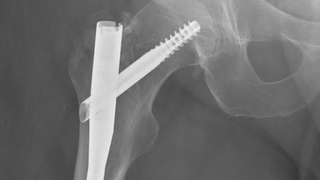Comprehensive Care for Maximum Recovery
A fragility fracture is a fracture resulting from a fall from standing height or less. These fractures, which most commonly occur at the hip, spine, or wrist, are an indication that the body’s bones have been weakened by an underlying illness.
Roughly half of all women and up to one-quarter of all men will suffer a fragility fracture in their lifetime. People who have had a previous fragility fracture are twice as likely to suffer a fracture in the future. Especially in older patients, fragility fractures can lead to increased risk of mental and physical problems and a significant decrease in mobility and quality of life. Some fragility fractures can have a mortality rate as high as 33 percent within the first year.
After a fracture, it is essential that patients be prepared as quickly as possible for surgical intervention. Once the fracture has been managed, the immediate next step should be planning to prevent future fractures.
The UT Southwestern Fragility Fracture Program includes a team that specializes in handling treatment, prevention, and ongoing medical management of the complex conditions that often accompany these fractures. These multidisciplinary experts include internists, geriatricians, endocrinologists, anesthesiologists, and fellowship-trained orthopaedic surgeons. We also offer consultations for physicians in our community.











